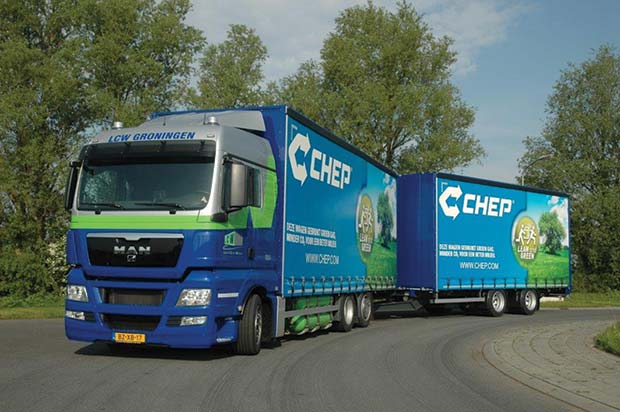Protecting your employee’s welfare while providing them with a safe environment in which to carry out their job is a vital obligation. Yet the workplace can present serious dangers, particularly in the warehouse where large machinery, fork lift trucks and heavy loads play such a significant part in any worker’s day.
![Dennis2-(2)[4]](https://warehousenews.co.uk/wp-content/uploads/2016/07/Dennis2-24.jpg) So what’s the key to successful health and safety practice? Dennis Millington, Operations Director for pallet pooling specialist CHEP, thinks it’s all about employee engagement.
So what’s the key to successful health and safety practice? Dennis Millington, Operations Director for pallet pooling specialist CHEP, thinks it’s all about employee engagement.
With a nationwide network of service centres, processing in the region of 600,000 pallets every single week, health and safety is a serious consideration for CHEP.
The man responsible for this network is Operations Director Dennis Millington who views the importance of health and safety at three levels. “Firstly, there’s the legal obligation that represents the minimum standards any responsible employer must adhere to. This is their responsibility to keep their people safe and look after their wellbeing. Secondly, there’s the productivity aspect in terms of keeping the production line moving in order to fulfil customer’s orders. And finally, but most importantly, is the moral commitment that we want to demonstrate towards our people, and show them that we care for them and their wellbeing.”
Safety is the output of successful engagement
It’s this moral obligation that Dennis refers to that underpins CHEP’s entire approach to health and safety, which it refers to as Zero Harm and is pervasive throughout the entire organisation. “If you want your people to behave in a certain way, then you need to create the right environment for them to do so. By engaging with our people at all levels across the organisation, we’ve empowered them to take responsibility for their own safety and that of their colleagues. Safety is the output of this successful engagement,” comments Dennis.
The Zero Harm programme was first introduced to CHEP around ten years ago, and during this time the organisation has seen a dramatic cultural shift. Employees now have a heightened awareness of health and safety, and the role they can play to influence their working environment.

Communication and training have contributed heavily towards this cultural shift with many of the best practices first adopted in the Service Centre network being transferred to the office environment and by fieldbased staff too. For instance, all employees are actively encouraged to report near misses, with over 78,000 being reported across the business last year alone. Before Zero Harm was introduced this figure was around 100 per year.
Management commitment is essential
Of course, empowering employees in this way requires commitment from top-level Leadership within the business. This level of Management commitment is essential in terms of actioning the observations of the people and making investments where necessary to enhance safety.
“Zero Harm is an agenda item on every Management meeting, and is also included in the company’s annual employee survey which has shown increased levels of employee engagement in every year since its introduction”, adds Dennis.
Proof – if any where needed – that CHEP’s Zero Harm programme is now ingrained within its culture.
Any successful health and safety programme is perpetual, with the ongoing aim being that of continuous improvement. Dust, noise and vibration reduction are all ongoing programmes for CHEP with the legal limits all achieved. But the desire and commitment to go even further for the wellbeing of its people is typical of its attitude towards zero harm.
Likewise, the company is also starting to invest in automation where possible to remove manual intervention, and automatic scanning detection equipment has already been rolled out to four of its UK plants.
RoSPA Gold Award Further proof of the success of CHEP’s health and safety practices has recently come in the form of its latest Gold Award from the Royal Society for the Prevention of Accidents (RoSPA) for the 4th consecutive year. This year, the RoSPA Awards is celebrating 60 years of presenting highly-regarded and sought after accolades to businesses and organisations which have shown commitment to accident and illhealth prevention.
“Our Pontefract plant is a shining example, where rigorous processes and employee engagement have helped us to achieve over 2 million hours free of lost time incidents, over 8 years of operation. To receive the Gold Award for a fourth consecutive year is a fantastic achievement, and testament to the ‘prevention is better than cure’ attitude and behaviour of all our people throughout the organisation” concludes Dennis.
Further information
For further information regarding CHEP or its health and safety programme please contact Michael.potts@chep.com in the first instance.




Comments are closed.